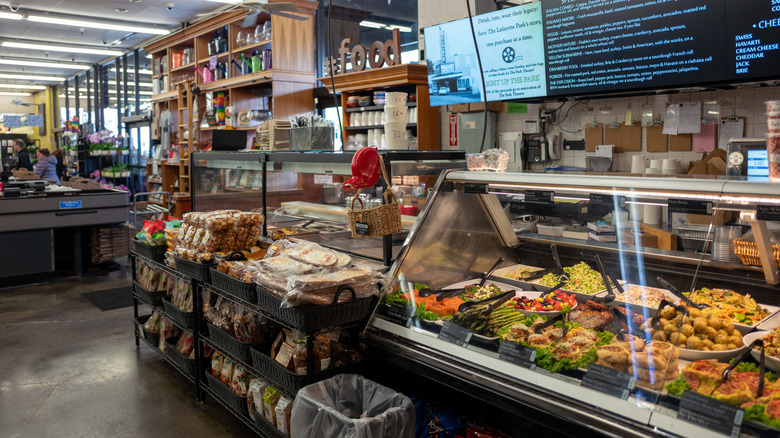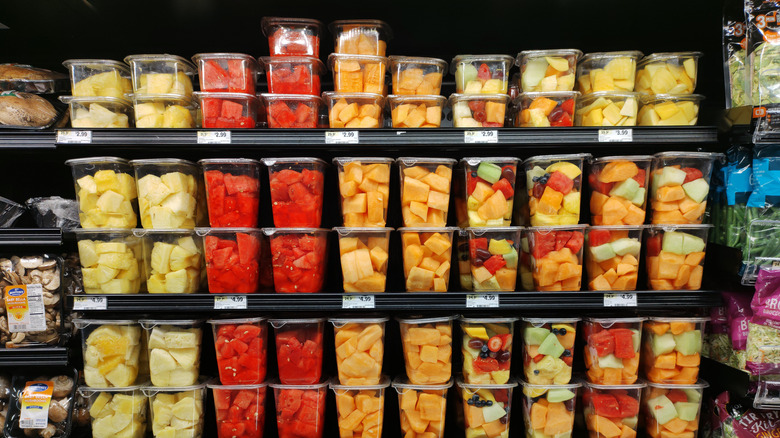The Convenient Snack You Should Probably Avoid At Your Deli
Convenience has long been king when it comes to snacking, dating at least as far back as the turn of the 20th century in America with the invention of grazeable packaged foods like Cracker Jacks, Fig Newtons, and Triscuits. Demand for easy-to-consume products has only grown, but there is one trending snack that you may want to eliminate from your diet because it could cause foodborne illness: Pre-cut produce. Shoppers may seek out deli tubs of diced mixed fruits and veggie cups as a healthy alternative to, say, a Snickers, making these ready-to-eat items an $11 billion sector. But it might just be safer to opt for a granola bar the next time hunger pangs strike when you're on the go.
Relying on someone else to chop food into bite-sized proportions is a great kitchen assist, but convenience may come at a cost. The Centers for Disease Control and Prevention recommends washing all produce — even food with a rind or a peel that you don't intend to eat — due to the possibility of salmonella, E. coli, and listeria contamination. Consumers simply don't know whether pre-cut items or prep stations have been properly sanitized, which means bacteria on the protective exterior layer could be transferred to the flesh when slicing insufficiently scrubbed-down foods. The risk of tainted produce transferring harmful pathogens to other products is significant — whether at commercial facilities or the supermarket — since multiple fruits and vegetables are being processed at the same time.
Risks vs. reward
The hazards of ingesting pre-cut produce were underscored in 2018, when a salmonella outbreak linked to pre-cut melons sickened nearly 80 people in nine states, sending 36 to the hospital. The fruits were sold (and eventually recalled) in several big-name retailers and warehouse clubs, including Costco, Kroger, Trader Joe's, Walgreens, and Walmart. Melons are particularly susceptible to contamination since they're grown on the ground and may come into contact with anything ranging from manure to polluted irrigation water to bacteria-tinged dirt. According to the National Institutes of Health, listeria, salmonella, and E. coli can survive in the soil for months.
Despite the risks of illness, pre-cut produce doesn't appear to be going anywhere. In fact, The Food Industry Association reports that 68% of shoppers say they'd like stores to expand their selection of these goods, even though they cost more than whole fruits and vegetables and inflation pricing persists. Perhaps, however, there is a tradeoff, considering that the risk of coming down with a debilitating illness is small (of the estimated 48 million cases of foodborne illness annually, only 128,000 of those result in hospitalization, according to the Federal Department of Agriculture). So if pre-cut means more people are eating their greens (and otherwise), then that's a nutritional win. However, if you're willing to consider ditching the prepared version and going whole — which comes with the added environmental benefit of less packaging — you can check out our tips for finding the best-quality produce at the grocer.

